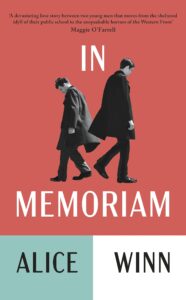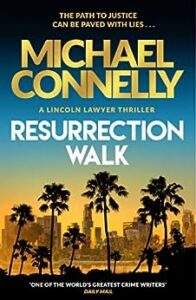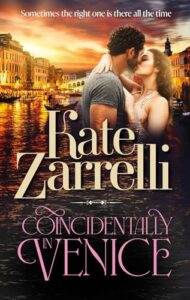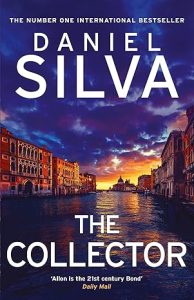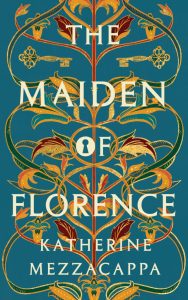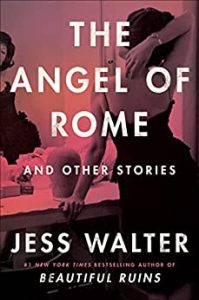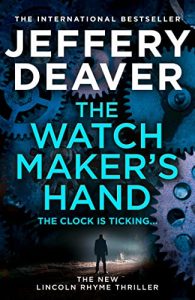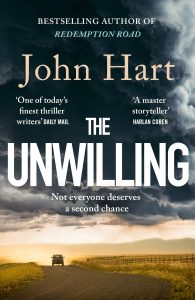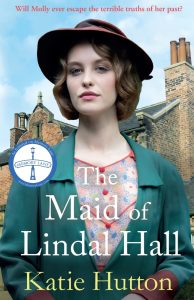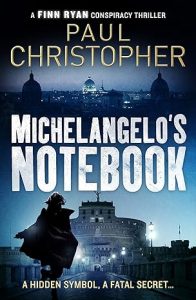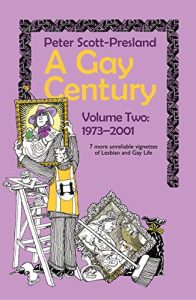Wot I’ve been reading
There’s been a hiatus due to technical problems. In case you didn’t find your way to my resurrected old blog, here are the reviews you missed:
* * * * * * * * * * * * * * * * * * * * * * * *
Gay love in the trenches of World War One
ALICE WINN: In Memoriam
At a boys’ private school in rural England teenage Sidney Ellwood is infatuated with Henry Gaunt. They both write poetry (in a postscript Alice Winn admits that she drew inspiration for her two lead characters from Siegfried Sassoon and Rupert Graves) and have been dabbling in adolescent sex with other pupils. But this is 1914 and Britain is going to war with Germany. Girls are giving white feathers to young men accusing them of cowardice if they are out of uniform.
As soon as they are old enough (18) Gaunt and Ellwood join up and find themselves reunited with other old boys from their school in the trenches of Belgium and France, culminating in the Somme, where wave after wave of British soldiers fight to advance a few yards into German-occupied territory. We already know the casualty rate: thousands die; thousands more will go home scarred and mutilated physically and mentally. The “war to end all wars”; of course, it didn’t.
Alice Winn is not the first female author to write about men at war. Pat Barker wrote a Booker-prize-winning trilogy and an early Susan Hill novel has gay love flourishing in the trenches. Like her predecessors, Winn writes beautifully and does eloquent justice to the theme of gay love in wartime. In Memoriam moved me to tears several times. This is an outstanding novel, one of the best I have read since the turn of the century and, right now, a timely reminder that wars don’t only happen to other people. Our fathers and grandfathers became cannon fodder 110 years ago, and it could very easily happen again to us and our sons and brothers.
* * * * * * *
* * * * * * *
Guilty till proven innocent
MICHAEL CONNELLY:
Resurrection Walk
* * * * * * * * *
Romance, fashion and food in Venice: What could be better?
KATE ZARELLI:
Coincidentally in Venice
Watching a piazza in Venice on a webcam helps London office-worker Ashley through the Covid lockdowns and a love affair that turns sour. Made redundant in 2022 she and her best friend Juliet go to Venice and seek out the square. Juliet quickly finds a dishy Italian waiter, but romance for Ashley takes the unlikely form of an Irish accountant from her old firm, beginning a new career as an art restorer.
Ashley and Juliet both start totally different lives in Venice. The wife of Ashley’s ex-boss, now launching herself as an art patron, threatens to put a spanner in the works, but …. No spoilers from this reviewer!
Kate Zarelli also writes as Katie Hutton, rich and intense historical fiction set in the English Midlands. In her Derbyshire novels I have detected a hint of Thomas Hardy. In her contemporary novels I hear sizzling echoes of Carrie Bradshaw and Bridget Jones. Ms Zarelli brings people and places gloriously to life and light. Coincidentally in Venice has everything its magical setting deserves: romance (with titillating sex scenes) laced with a hint of danger. For food lovers there are some delicious meals, and for fashion-lovers some frocks to die for!
* * * * * * * * * * *
What I’m reading: From stolen art to nuclear Armageddon
Daniel Silva: THE COLLECTOR
After five years heading the most lethal branch of Israel’s secret service Gabriel Allon has retired to Venice with his (second) wife and children. He resumes his other career as an art restorer (the best in the business) but accepts a commission to investigate the murder in Amalfi of a shipping tycoon who happened to own a missing Vermeer portrait, stolen more than thirty years ago.
The trail leads, as they so often do in Daniel Silva’s stories, to the decadent Kremlin of Vladimir Vladimirovich (only in the postscript does he add the surname beginning with P). A honey-trapped Danish oil tycoon is an intermediary for the stolen art and implicated in a daring scheme to escalate the Ukraine war into a nuclear Armageddon.
To thwart this apocalyptic plan, Gabriel recruits a newcomer to his team, an IT hacker, also Danish, with a sideline as a cat-burglar (she stole the stolen Vermeer but didn’t kill the tycoon), who reminded me of Modesty Blaise, a superwoman from the era of Ian Fleming’s original Bond books. Like Peter O’Donnell’s Modesty, Silva’s Ingrid should be – and almost is – too good to be believed, but the author brings her and his story to a nail-biting climax on the Russian-Finnish border, where the skills from Gabriel Allon’s first career as a Mossad assassin come in handy.
Daniel Silva’s twenty-third Gabriel Allon adventure is one of the most outlandish and dangerously close to being a parody, but the sheer pace of this ‘caper’ carries the reader breathlessly along. Another terrific read from my long-term favourite thriller writer.
What I’m watching: Romcom that doesn’t want to be a romcom
BROS (Netflix)
This 2022 movie is new, belatedly, to Netflix in UK. It’s a romcom about two guys who don’t want their lives to be like a gay version of When Harry Met Sally. Bobby (Billy Eichner) is a popular podcaster heading up a team to launch a LGBTQ ‘History Museum’. Aaron (Luke MacFarlane) has an IT job but dreams of being a chocolatier. They become sex-buddies but resist – not for long – becoming a ‘couple’. When they do become a couple things get complicated; why wouldn’t they?
The first half of the movie is a lot like episodes of Will & Grace (and even has Debra Messing in a cameo – as herself); lots of snappy dialogue and . When it stops trying not to be a romcom and becomes a romcom, it climbs out of the shallows and becomes a serious ‘Relationship Movie.’ The sex scenes are pretty hot stuff (hot stuff and pretty); the two leads are attractive and believable; the supporting cast, especially the History Museum boardroom, are a joy.
My favourite gay Netflix series is still Hollywood, which revised Tinseltown history to turn the deeply closeted Rock Hudson into a liberationist pioneer. But Bros is fairly charming, a big improvement on Smiley and Fire Island.
What I’m reading: the price of virginity
Katherine Mezzakappa:
THE MAIDEN OF FLORENCE
Florence, 1584. The virility of Vincenzo Gonzaga, heir to one of Mantua’s most powerful families, has been called into question ahead of his marriage to a princess of the Medici clan. A bridal ‘surrogate’ is called for, a virgin whose deflowerment will scotch the rumours. The chosen virgin is Giulia, a girl of rare beauty growing up in an orphanage in Florence, the illegitimate daughter of another noble family. In return for her maidenhead, she will be rewarded with a generous dowry and a respectable husband.
Prince Vincenzo is a ‘playboy’ of his time; spoilt and selfish but stunningly handsome; Giulia falls for him and he for her. Their mating is very unromantic: the ‘rules’ require medical witnesses not just to confirm Giulia’s virginity but also to verify every stage of her deflowerment. Giulia is narrating her story and both procedures are so clinical as to remove most of the erotic element. The process is fully successful; Vincenzo impregnates her, but this child, a prince’s bastard, is also confined to an orphanage.
The husband they find for her, Giuliano, is a good kind man, a musician, and they will have a happy life punctuated by a number of childbirths and, inevitably, some child deaths. But Giulia resolves to find her first child, the prince’s bastard, even though this involves further dealings with Cavaliere Vinta, the Gonzagas’ creepy majordomo.
Katherine Mezzakappa’s novel, a true historical story melding into fiction, is finely researched and fully convincing. Giulia’s narrative voice is modern, but never clunky or anachronistic; Florence, observes Giulia, is “too small for secrets to remain secrets for long,” Renaissance Italy is brought vividly to life. From a squalid episode in 16th-century history Mrs Mezzakappa has crafted a literary gem, a story richly steeped in romance and drama.
What I’m readIng: A year or two of beIng gay
Jess Walter: THE ANGEL OF ROME
I read an enthusiastic review of this short story collection and decided to try it. A widely mixed bunch, several gay-themed. The title story is about a young American theology student in Rome befriending an A-list movie actress (fictionalized: is it Loren or Lollobrigida?) I watched My Week With Marilyn at the same time, which was a lot busier and more entertaining. Similarly themed, ‘Famous Actor’ has a woman in Oregon enjoying a one-night stand with an actor past his prime; some acerbic dialogue and merciless appraisals of his movie career gave this real juice.
‘Town & Country’ is the best of the gay tales. Jay’s widowed dad, a serial adulterer sliding into dementia, doesn’t remember his son came out. A daughter in ‘Mr. Voice’ recalls several weddings and two funerals in her mother’s complex history.
The concluding story, ‘The Way the World Ends’, offers dystopia flavored with graveyard humor. Four climatologists, drunk and stoned, discuss the doomsday scenario for the planet while a mixed-race night porter, newly out, worries about joining a banned Pride march in 1960s Mississippi. Here’s a sentence David Sedaris would be proud of: ‘He wouldn’t mind having a year or two of being gay before getting beaten up for it.’
It’s easy to find echoes of other writers if you look for them. As well as Sedaris, I sensed traces of John Updike here and there, a true maestro to be influenced by. Jess Walter introduces a bunch of highly original characters. He writes extremely well, with occasional flashes of real brilliance. The cover blurb promises a “dazzling collection” of stories: I was duly dazzled.
What I’m reading: Toppling cranes – a new kind of eco-terrorism
Jeffery Deaver: THE WATCHMAKER’S HAND
The crane attached to a 78-storey building project collapses into a street in Manhattan after acid eats through the metal plates securing its concrete counterweights. Only one person is killed, but the damage is immense. A new eco-terrorist announces to the media that more cranes will be toppled unless the city commits to build more low-rent homes. Paraplegic detective Lincoln Rhyme investigates and soon learns that the perpetrator is an old enemy of his, a mercenary assassin known as The Watchmaker. And his real target is not Affordable Housing but revenge on Lincoln who thwarted him previously.
A cat-and-mouse game is under way. Can Rhyme and his team identify the next target building before The Watchmaker brings another crane down? And who at police HQ or City Hall is leaking details of the operation to the terrorist?
This is the fifteenth instalment of Jeffery Deaver’s Lincoln Rhyme series, which began with The Bone Collector in 1997 (memorably filmed with Denzel Washington as the wheelchair-bound investigator). Rarely has a crime thriller equalled that ground-breaking debut, but The Watchmaker’s Hand is close to Deaver’s top form – terse and tense, expertly plotted and brilliantly exercised. The book has a lengthy ‘coda’ which gives the story an extra grandeur.
Unputdownable reads are not easy to find in the age of AI and streaming networks, but here’s one that will nail you to your seat.
What I’m reading: Thrillers don’t come better than this
John Hart: THE UNWILLING
North Carolina, 1972. In a grungy suburb of Charlotte, Jason French, a Vietnam war hero who ended up with a dishonourable discharge, comes home after a spell in prison for crimes of violence. His father is a police detective. His parents and 18-year-old brother Gibson are still mourning the death of Jason’s twin brother, also in Vietnam. Within days of Jason’s return a local good-time girl is horrifically tortured to death. The killer leaves evidence which frames Jason for the murder. His father and brother separately try to locate the real killer, a sociopath hired by a Death-Row prisoner known only as X, the most chilling psychopath since Hannibal Lecter.
The book is narrated from several viewpoints, including three of the Frenches and Reece, the killer-for-hire. As well as a crime procedural, this is also a story about fractured families, especially about brothers. And teenage Gibson falls in love for the first time with a local girl who becomes a potential target for the sociopath. Tenderness and terror side-by-side: a potent mix.
John Hart, like Hannibal Lecter’s creator Thomas Harris, takes a few years to produce each new book, but they are, like Harris’s, well worth the wait. Stylistically arresting and cunningly plotted, The Unwilling is an A-list example of the psychological thriller. They do not come better than this.
My only complaint is that the publishers have economised on paper by printing to the very bottom of each page, omitting the normal margin; sorry to say this, but I hope Bonnier Books will risk cutting down a few more trees in future (recycling better).
What I’m reading: Enthralling saga in the Thomas Hardy tradition
Katie Hutton: THE MAID OF LINDAL HALL
Katie Hutton’s trilogy of Cumbrian family sagas becomes a quartet and advances to the 1930s. Annie of Ainsworth’s Mill is now Annie McClure. She and her husband Robert run a foster home for children who would previously been consigned to the workhouse. Her latest protegee, Molly Dubber, follows other orphaned girls into domestic service, initially with a dotty old spinster who is being drugged into near-unconsciousness by her malevolent companion.
Molly’s next posting is to Lindal Hall, the mansion home of Mr Gascarth, a kind and decent man who has nightmares about the trenches in the Somme. Recognizing Molly’s intelligence, he advances her education to improve her prospects. He also falls in love with Molly, who is torn between her employer and another young veteran, her foster-mother’s stepson, blinded in France and now making a precarious living as a piano-tuner. And Molly has yet to learn the truth about the terrible event that orphaned her into the care of the McClures.
In a lesser writer’s hands this could be a sloppy romance from the Barbara Cartland school. Katie Hutton has been influenced by writers of a greater calibre. As in her previous sagas, Elizabeth Gaskell and Thomas Hardy come to mind. Although Molly Dubber is cut from a different cloth than Far From the Madding Crowd‘s Bathsheba Everdene, her romantic dilemma is a similar one, and it’s easy to see elements of Mr Boldwood and Gabriel Oak in her two admirers (a Captain Troy figure has only a fleeting role). If Gaskell and Hardy have inspired Katie Hutton, she does them proud. The Maid of Lindal Hall is an enthralling story, beautifully told.
What I’m reading: Dan Brown-style thriller that’s better than Dan Brown
Paul Christopher: MICHELANGELO’S NOTEBOOK
Not a new paperback, one I missed previously, the first in a promisingly juicy series of conspiracy thrillers.
Finn Ryan, an art history student from Ohio, has two summer vacation jobs in New York: one as a nude model for a group of amateur artists, the other doing an inventory audit for a major art gallery. In the back of a drawer she comes across an unrecorded drawing of a dissected corpse that has all the hallmarks of Michelangelo. Within hours Finn’s boyfriend and the director of the gallery are both gruesomely murdered. Finn goes on the run with an antiquarian bookseller following links to a lost collection of looted Nazi art treasures. The Vatican-appointed assassin is hot on their heels.
The potboiler plot has some over-egged elements, such as the flashbacks to a convoy of trucks carrying the looted paintings at the end of WW2 and a provocative scandal involving Eugenio Pacelli, Pope Pius XII.
The title and the cover place Michelangelo’s Notebook firmly in the Dan Brown canon, although Paul Christopher writes a more elegant prose than Mr. Brown. The sheer pace and scale of the story have pleasing echoes of the rip-roaring Nicholas Cage National Treasure movies.
What I’m reading: the changing lives of gay men and women
Peter Scott-Presland: A GAY CENTURY Volume Two
The second volume of Peter Scott-Presland’s short plays chronicling the lives of gay men and woman through the twentieth century takes us from the 1970s to the millennium – three decades which saw huge changes to laws and attitudes in the UK and most of the world. Section 28 is revisited, and the legislation to legitimize same-sex partnerships and marriage and gay parenting.
In an ironic twist on the grim reality of the Aids pandemic, ‘Quarantine’ imagines that Health Secretary Norman Fowler was empowered to intern anyone with (or even suspected of having) HIV in prison camps on the Isle of Man. Comedy with a dark edge.
These playlets are written to be spoken or sung. As operettas they would be in the style of Brecht rather than Puccini; there are no soaring arias and the language is everyday. The opening chapter in Volume One, with Queen Victoria visiting Oscar Wilde on his deathbed in a Paris fleapit hotel and pirating lines from his plays, remains my personal favourite, as fruity as a Christmas cake, not quite equalled by anything in Volume Two. Victoria and Oscar, with others from the series, make ghostly cameo appearances in the seventeenth and final play, ‘Two Into One’, which has Ken Livingstone among the supporters of two old queens – make that two ancient queens – on their wedding day, a pair as dated and waspish as Derek Jacobi and Ian McKellen in ITV’s weirdly old-fashioned sitcom Vicious.
A Gay Century is an imaginative triumph. Bravissimo, Peter Scott-Presland!
